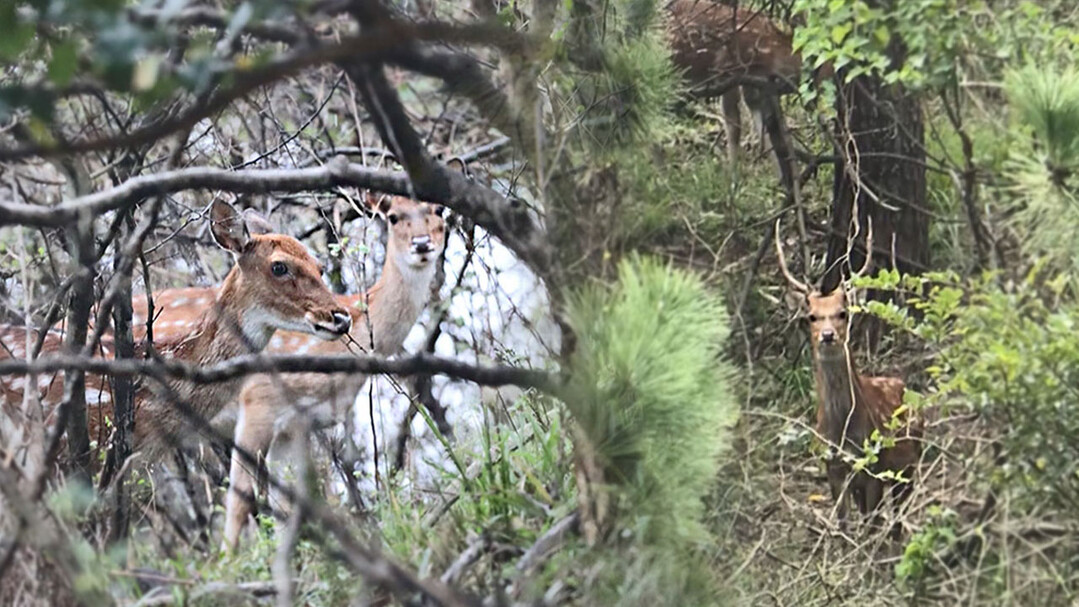
ANMA ISLAND, SOUTH KOREA - Decades of ecological disruption and agricultural devastation caused by an out-of-control population of introduced sika deer on Anma Island are finally nearing an end. In a significant move, the South Korean government has announced the impending designation of sika deer as 'harmful wildlife,' paving the way for active population control and ecosystem restoration. This decision comes after over 40 years of unchecked proliferation stemming from the irresponsible abandonment of livestock.
Sika deer, originally imported from Taiwan and Japan in the 1950s for economic and exhibition purposes, found an unintended haven on the remote Anma Island in the late 1980s. Approximately ten deer, once raised as livestock, were irresponsibly released by a local farmer. Without natural predators or regulatory oversight, the population exploded, reaching an alarming 937 individuals – a density 23 times higher than the national average for native roe deer.
The consequences have been dire. Anma Island has witnessed a dramatic decline in its vegetation health, with once vibrant grasslands and forests transforming into barren landscapes. Farmers have suffered an estimated 160 million won (approximately $117,000 USD) in crop damage over the past five years. Adding to the crisis, scientific research has revealed sika deer as primary hosts for ticks carrying Rickettsia bacteria, a pathogen that can cause fever and severe muscle pain in humans, posing a direct threat to the island's residents.
Responding to the escalating crisis, the Ministry of Environment has committed to finalizing amendments to the Enforcement Rule of the 「Wildlife Protection and Management Act」 within the current year. This crucial legal change will officially classify sika deer as harmful wildlife, granting local authorities the power to implement capture and culling programs. This decisive action aims to safeguard the island's fragile ecosystem and protect the livelihoods and health of its inhabitants.
Recognizing that the root of the problem lies in the irresponsible abandonment of livestock, the Ministry of Agriculture, Food and Rural Affairs is also stepping up its efforts. A proposed revision to the 「Livestock Industry Act」 currently under consideration in the National Assembly seeks to impose significant penalties on livestock farmers who abandon their animals, including potential imprisonment of up to one year or fines of up to 10 million won. This legislative push aims to establish clear accountability and deter future incidents of livestock abandonment that can have devastating ecological consequences.
These government initiatives are a direct response to a recommendation issued by the Anti-Corruption and Civil Rights Commission (ACRC) in January 2024. Following investigations into the Anma Island deer crisis and the broader issue of illegal livestock abandonment nationwide, the ACRC urged both the Ministry of Environment and the Ministry of Agriculture to develop comprehensive legal management strategies. The subsequent swift action by both ministries underscores the urgency and seriousness of the situation.
Further investigations by the Ministry of Environment have revealed a similar crisis unfolding on Guleop Island, where a population of 178 sika deer exists at a density 15 times higher than that of roe deer. The rapid reproduction rate and lack of natural predators make sika deer a particularly invasive threat. Their indiscriminate consumption of native vegetation, including grasses, fruits, and tree bark, leads to the demise of indigenous plant species and creates intense competition for food and habitat with native wildlife such as roe deer, water deer, and the endangered Korean goral, causing irreparable damage to the delicate balance of the local ecosystems.
Despite the decades-long presence and proliferation of wild sika deer, the absence of specific legal frameworks has hindered effective population control measures. The impending designation of sika deer as harmful wildlife, coupled with stricter penalties for livestock abandonment, marks a turning point in the management of introduced species and the commitment to ecosystem preservation, not only on Anma Island but potentially across the entire nation.
Yoo Cheol-hwan, Chairperson of the Anti-Corruption and Civil Rights Commission, hailed the development, stating, "The issue that has long been in a systemic blind spot has finally found a glimmer of hope for resolution. We will continue to actively coordinate and improve pending issues that cause inconvenience to the public." The residents of Anma Island and conservationists nationwide are hopeful that these long-awaited measures will finally bring an end to the ecological nightmare caused by the invasive sika deer and pave the way for the recovery of the island's unique natural heritage.
[Copyright (c) Global Economic Times. All Rights Reserved.]






























